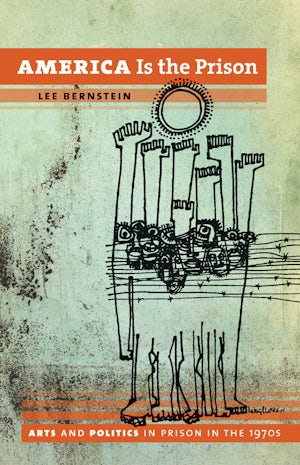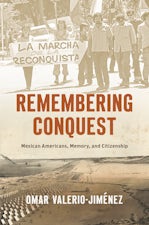America Is the Prison
Arts and Politics in Prison in the 1970s
By Lee Bernstein
240 pp., 5.5 x 8.5, 5 illus., notes, index
-
Paperback ISBN: 978-0-8078-7117-1
Published: April 2016 -
E-book EPUB ISBN: 978-0-8078-9832-1
Published: June 2010 -
E-book PDF ISBN: 979-8-8908-7958-5
Published: June 2010
Buy this Book
- Paperback $32.50
- E-Book $19.99
For Professors:
Free E-Exam Copies
Lee Bernstein explores the forces that sparked a dramatic "prison art renaissance," shedding light on how incarcerated people produced powerful works of writing, performance, and visual art. These included everything from George Jackson's revolutionary Soledad Brother to Miguel Piñero's acclaimed off-Broadway play and Hollywood film Short Eyes. An extraordinary range of prison programs--fine arts, theater, secondary education, and prisoner-run programs--allowed the voices of prisoners to influence the Black Arts Movement, the Nuyorican writers, "New Journalism," and political theater, among the most important aesthetic contributions of the decade.
By the 1980s and '90s, prisoners' educational and artistic programs were scaled back or eliminated as the "war on crime" escalated. But by then these prisoners' words had crossed over the wall, helping many Americans to rethink the meaning of the walls themselves and, ultimately, the meaning of the society that produced them.
About the Author
Lee Bernstein is chair and associate professor of history at the State University of New York at New Paltz. He is the author of The Greatest Menace: Organized Crime in Cold War America.
For more information about Lee Bernstein, visit
the
Author
Page.
Reviews
"America Is the Prison is a solid compliment to emerging literature on the history of U.S. imprisonment….Bernstein affords a rare view of the penal process from within, as seen by some of its most eloquent critics."--The Journal of American History
"This is a valuable contribution to the burgeoning study of one of America's central institutions and features: the prison. Lee Bernstein zooms in on a crucial period of aesthetic, intellectual, political, and social transformation involving the American prison, surveying both the striking achievements of prison consciousness in this key decade and the emerging repression that would unleash the frenzied construction of our present prison-industrial complex."--H. Bruce Franklin, Professor of English and American Studies, Rutgers University
"With nearly 2.3 million U.S. citizens behind bars, Lee Bernstein's close study of prison life in the 1970s could not be timelier. In that decade, corrections practices were by turns harshly repressive and creatively reformist. Liberating and rehabilitating arts programs were everywhere, and politicized and articulate prisoners influenced movements beyond the prison walls. Bernstein's research is admirably thorough and even-handed; his writing is lucid and provocative. An illuminating read for all concerned about the future of our society."--Bell Gale Chevigny, editor of Doing Time: 25 Years of Prison Writing, A PEN American Center Prize Anthology




